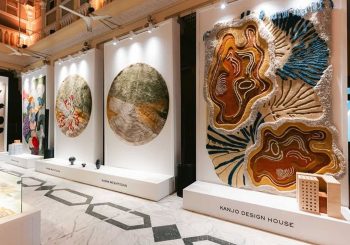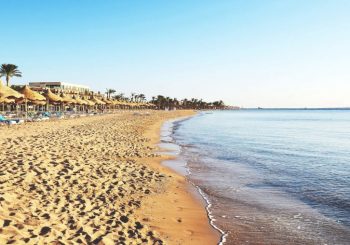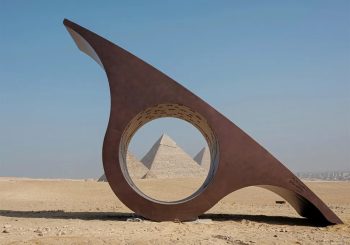Organizers announced this week that Khaled Zaki’s “Resurrection Alphabet” solo exhibition will be featured in Riyadh Art Week from 6 to 13 April 2025, which will be held at the vibrant JAX District and beyond, bringing together leading local and international galleries, cultural institutions, artists, patrons, collectors, and art enthusiasts.
The showcase precedes Zaki’s participation in the sixth Tuwaiq Sculpture International Symposium, a marquee event where he joined 29 artists from 23 countries to create permanent public installations for the Saudi capital between January 15 and February 8, 2025.
The event, themed From Then to Now: Joy in the Struggle of Making, culminated in a public exhibition of the finished pieces from 12 to 14 February.
Zaki was the sole Egyptian artist selected for this year’s symposium, joining an international roster of talent that includes seven Saudi sculptors and participants from countries such as Russia, Qatar, China, South Korea, Japan, Italy, Spain, and Australia.
Born in Suez in 1964, Zaki has gained global recognition for his sculptures and installations, which draw inspiration from ancient Egyptian art, Italian Renaissance traditions, and the modernist heritage of Egypt.
He holds a master’s degree in restoration from Cairo University’s Faculty of Archaeology and honed his skills in sculpture at the Al Khonaini Museum of Art in Giza. Between 1988 and 1997, Zaki lived in Pietrasanta, Italy, a town famed for its artistic legacy, which profoundly influenced his work.
His artistic breakthrough came in 2000 when he won a prestigious national competition to create a monumental sculpture for Galaa Square in Cairo. Over the years, his talents gained international recognition, including being awarded the International Artist Prize at ART Taipei in Taiwan in 2015.
The political and social upheaval of the Egyptian revolution in January 2011 marked a pivotal moment in Zaki’s creative journey. His style evolved from purely abstract forms to a compelling fusion of abstraction and figuration, enabling him to convey the complex emotional and psychological landscape of contemporary Egyptian and broader Arab societies. Through this shift, Zaki has been able to articulate themes of hope, identity, and collective consciousness.
Deeply inspired by the artistic traditions of ancient Egypt and the broader Mediterranean basin, Zaki’s sculptures often explore the concept of resurrection. This thematic focus is reflected in his choice of materials, symbolic forms, and a refined palette, all of which evoke a sense of continuity between past and present.
In 2013, Zaki had the distinct honor of representing Egypt in the national pavilion at the Venice Biennale, one of the most esteemed art exhibitions in the world. Throughout his career, he has showcased his work in numerous international exhibitions and art symposiums.
His sculptures are housed in major institutions such as the Egyptian Museum for Modern Art in Cairo and the Egyptian Museum for Modern Sculpture in Aswan. Additionally, his work is featured in private collections across the globe, including in the United States, Mexico, Belgium, Italy, Germany, Ireland, Kuwait, the UAE, and Saudi Arabia.







Comments (0)